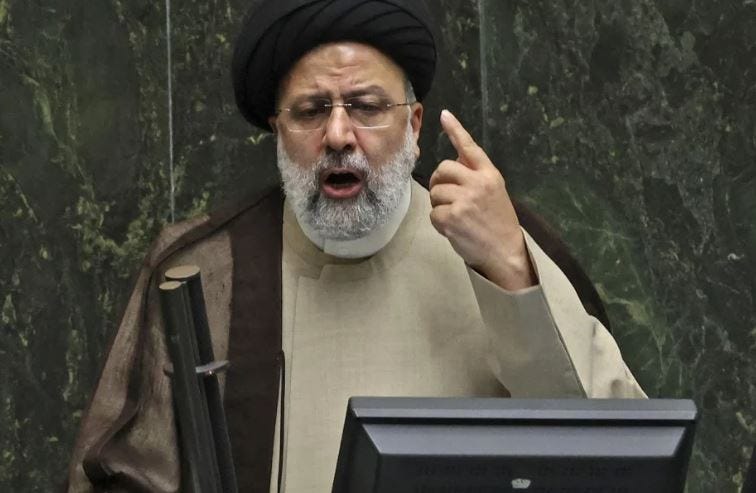If the killing was meant to push Iran back, it has failed abysmally. Soleimani's ability to maintain a modicum of stability outweighed any benefits that his death could have brought.
Two years have passed since Qassem Soleimani, commander of the Quds Force of Iran’s Islamic Revolutionary Guard Corps (IRGC), was killed by a US drone strike on the tarmac of Baghdad airport.
Soleimani was the brain behind Iran’s shadow war in the Middle East, and for years the counterpart of US Central Command (Centcom) leaders and CIA directors, as he boasted about in a text message he allegedly sent to General David Petraeus, the former US military commander in Iraq.
In the process, Soleimani became a local hero against western hegemony in the region, the main enabler of the resistance for large Shia constituencies spread around Iran, Iraq, Syria, Lebanon, Afghanistan, Yemen and Gaza. But he also crossed the sectarian divide, garnering significant support from the Kurds and other Sunnis. Millions turned out onto the streets of Tehran and his hometown of Kerman to see his coffin, in a collective show of grief not seen since the funeral of Ayatollah Khomeini in 1989.
For the West, Israel, their Arab partners, the Syrian opposition to Bashar al-Assad, and the Yemeni opposition to the Houthis, he was the mastermind of Iran’s many acts of terror. But has his assassination significantly altered the Middle East’s strategic landscape? Has his removal fulfilled the purpose for which it was conceived?
No imminent threat
More has come out about the assassination. At the time, the Donald Trump administration claimed that Soleimani was killed to pre-empt a major strike that he was planning. This has now been debunked. There was no imminent threat from Iran against US personnel in the region to justify the strike carried out in Baghdad on 3 January 2020.
More recently, Trump has hinted about Israeli manipulation behind his decision to eliminate the top Iranian strategist, adding unequivocally, however, that ″the Israelis are willing to fight Iran until the last American soldier″. Trump’s statement was ambiguous, but Major General Tamir Hayman, former chief of Israeli military intelligence, was not. He confirmed Israel’s role in the killing.
If Jerusalem had then nurtured any hope to remain shielded from Tehran’s wrath, Trump’s and Hayman’s words have dashed it. Israeli decision-makers should keep in mind that, as observed previously, Tehran’s response to Soleimani’s killing could take years to unfold.
The then prime minister of Israel, Benjamin Netanyahu, thought he was being clever in persuading Trump to withdraw from the Iran nuclear deal, the Joint Comprehensive Plan of Action (JCPOA), in 2018, and apparently twisted his arm in doing the dirty work of Soleimani’s elimination for Israel. However, it is becoming clear that neither decision served Israel’s national interest, not to mention that of the US.
Thanks to Washington’s withdrawal from the JCPOA, Tehran is now closer than ever to the nuclear threshold.
Important developments
As far as the strategic landscape of the region is concerned, it is doubtful that the relative position of Israel or the US has improved. True, Israel has carried out a smart engagement policy with some Arab states, which has produced significant economic results, mainly with the UAE.
Important developments are also forthcoming with Bahrain and Morocco, but it is still too early to say if they will have a strategic impact. Until Saudi Arabia, jewel in the crown of Israeli normalisation with the Arab world, joins the Abraham Accords, the judgment remains suspended.
Simone Amy
Hi there, I am Simoneamy.My innovations is to fetch Worth informations and Reports that Interacts to Public.



